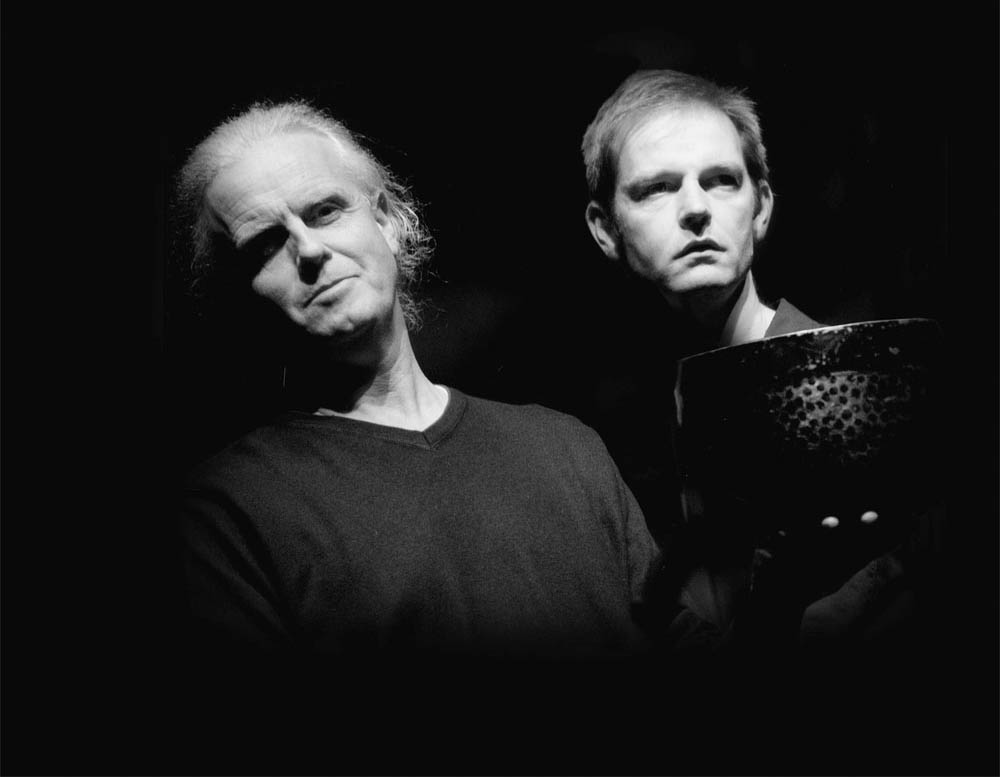Hugh Lupton is an award-winning storyteller, performer and author. He is also a poet and lyricist. His work spans over 35 years, working on both solo projects and in partnership with other artists, writers, musicians, illustrators and performers.
He has toured both nationally and internationally and has performed at the RSC, the National Theatre and the Barbican, as well as at schools, community venues and arts centres the length and breadth of Britain. His repertoire ranges from Greek epic to Grimms Fairy Tales, from Norse and Celtic myth to East Anglian folk-tales, from the Great War to John Clare. Thematically his work often explores our place in the landscape and the deep cultural memories we carry.
His books are as wide-ranging in subject matter as his spoken word work and cater for both adults and children, in addition much of his work is available on CD.
Unriddling the World
Fifty Wonder Tales
‘Tales that are orchestrated for the living voice, and interaction of teller and hearer’
ROWAN WILLIAMS, bishop, theologian and poet
‘In Lupton’s language we relearn what it is to be part of a human community’
ERICA WAGNER, author and literary critic
‘Hugh Lupton is our finest British storyteller’
KEVIN CROSSLEY-HOLLAND
Carneigie Medalist, poet and author of the ‘Arthur’ trilogy
Biography
Hugh Lupton’s interest in traditional music, in street theatre, in live poetry, and in myth, resulted in him becoming a professional storyteller in 1981 (there were perhaps half a dozen in Britain at the time), working largely in schools. In 1985 he formed the Company of Storytellers with Ben Haggarty and Sally Pomme Clayton with a view to taking storytelling to adult audiences…

Sam Sweeney’s Fiddle: Made in the Great War
…a wondrously fresh and slightly quirky take on an old theme…. Buying an apparently brand-new violin in Oxford as an 18-year-old student in 2007, Sweeney got it home to discover an inscription indicating the instrument was “Made in the Great War” by Richard S Howard in Leeds in 1915. His subsequent quest to discover the history of the violin – and its maker – drives a show which, in the hands of narrator Hugh Lupton is charming, enlightening, warm and ultimately shocking. With Lupton charting Richard Howard’s journey from husband, father, music-hall performer and luthier to its horrific denouement on the front line in Flanders. Sweeney – all braces and shorn hair – plays the fiddle at the heart of the tale alongside concertina wizard Rob Harbron and fellow Bellowheader Paul Sartin, who recreates the clipped enunciation of wartime singers with startling accuracy. Between them, they weave a rich variety of moods around Lupton’s impossibly engaging storytelling… an unusually potent show.
Interview with Hugh
Steve Gladwin talks to Hugh Lupton – September/October 2020
Read more here
Shows
For more information on shows and performances, or to read a synopsis of each show and to find out more about booking and costs please
Horses
Hugh Lupton and Chris Wood.
“In this ‘funeral oration that never happened’, folksong frames the two stories that weave a whole life around you, bringing the hard world of the late 19th Century farm back to life. You hear the voice of the farmer ‘husky with the early morning’, on the day that the horses were stolen. You hear the horseman speaking ‘more in song than in words’ as he calls them, ‘the sweet high whistle’ that turned the working team on the plough, ‘the secret trill that urged the geldings on, with loaded wagons up Royston Hill’. You feel the warm rubbly breath, the hard curve of the nose-bone, smell the must of the stables, the sweet harness soap, and, as you journey deeper into the world of imagination, the tears start slowly to well up inside you and spill’.
Merchandise
To see the range of Hugh Lupton’s books and audio CDs, and to find out where you can obtain them online with links to the products at stockists
The Iliad.
“…I went to the Barbican the other day to listen to two of Britain’s finest storytellers – Hugh Lupton and Daniel Morden – recounting the Iliad, the tale of that great quarrel from which all western literature springs. The seats were uncomfortable… but the hours flew by. These two men had to do no more than tap into the ancient power of the spoken word to hold an entire audience in their thrall. A veil of typescript fell from my eyes.
I saw Helen in all her intoxicating beauty standing amid the bloody chunks of a slaughtered stallion. I saw Achilles aglitter in gold armour before his black ranks of Myrmidons. I saw banquets and voyages, armies and oceans, battling heroes and ravening gods – all conjured out of thin air by a voice. Film is often thought to be a threat to literature. But the images that billowed and faded in that darkened auditorium were quite different from those that unspool across a screen. I could put my hands in front of my face and the pictures would not vanish. They were inside me. They belonged to me. They were part of the history of the whole of human life.”

